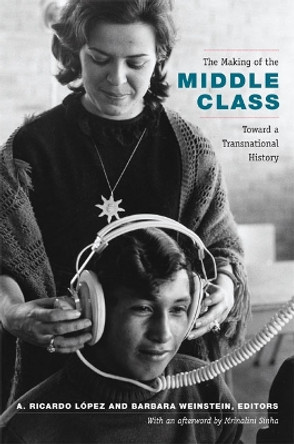Description
White-Collar Blues follows the Turkish members of the global elite workforce as they are selected into, survive within, and opt out of coveted employment at transnational corporations. State-employed doctors, lawyers, and engineers were long seen as role models until Turkey followed the global tide of neoliberalism and began to embrace freer circulation of capital. As world-renowned corporations transformed Istanbul into a global city, Turkey's best and brightest have increasingly sought employment at brand-name firms. Despite achieving upward mobility within and beyond Turkey, however, many Turkish professionals end up feeling disappointed, burned out, and trapped in their corporate careers.
Drawing from more than one hundred interviews in Istanbul and New York City, Mustafa Yavas develops a theory of middle-class alienation, explaining how so-called "good jobs" fail elite workers. Yavas shows how educational investments in an increasingly competitive landscape lead to high hopes, which then clash with poor work-life balance, low intrinsic satisfaction, and a felt lack of meaning from labor in corporate workplaces. Highlighting the trade-off between freedom and financial security, White-Collar Blues reveals the hidden costs of conflating the quest for socioeconomic status with the pursuit of happiness.
About the Author
Mustafa Yavas is a postdoctoral fellow in the Center for Economy and Society at SNF Agora Institute at Johns Hopkins University.
Reviews
Nationally specific but globally relevant, White-Collar Blues shows what happens when an occupational prestige system spreads worldwide. Yavas' theoretically ambitious and beautifully executed study of the transnational Turkish middle class is essential reading for anyone seeking to understand how young professional-managerial employees become ensnared in soul-sucking career sectors and what it takes to get out. -- Amy J. Binder, author of The Channels of Student Activism: How the Left and Right Are Winning (and Losing) in Campus Politics Today
Rejecting the static structures of classical social theory, White-Collar Blues reframes social class as a product of organizational practices and relationships. Class is not a position, but a relational accomplishment and ironically the "winners" in the transnational middle class find themselves disappointed, exhausted, and trapped, toiling for firms that exploit their ambitions in jobs they find meaninglessness. -- Donald Tomaskovic-Devey, author of Relational Inequalities: An Organizational Approach
White-Collar Blues asks what happens when ambitious young workers succeed in landing "good jobs" at powerful transnational firms. The result -widespread feelings of exhaustion, frustration, and alienation-reveals a great deal about the reward structure that global corporations have established across so much of the modern world. An indispensable intervention in the debate over the future of work. -- Steven Peter Vallas, Professor Emeritus, Northeastern University
Book Information
ISBN 9780231213615
Author Mustafa Yavas
Format Paperback
Page Count 336
Imprint Columbia University Press
Publisher Columbia University Press






